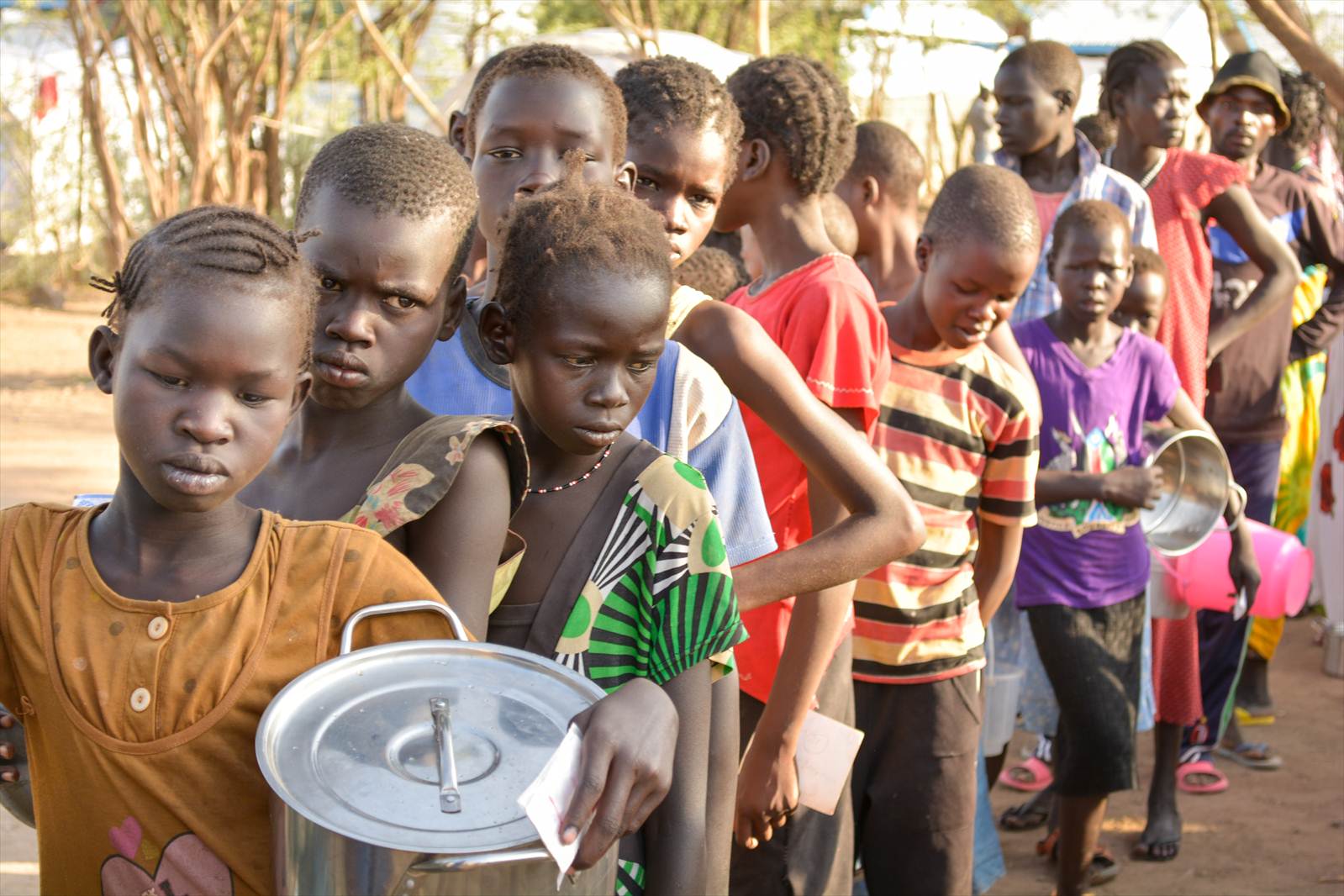One year after peace deal, South Sudan in turmoil
Wednesday, August 17, 2016

One year after a peace deal* in South Sudan, the world’s youngest nation remains wracked by conflict, the number of people displaced from their homes has increased by hundreds of thousands, an additional one million people are suffering from hunger and malnutrition, and now disease threatens to add to the death toll.
World Vision is on the ground in South Sudan and with South Sudan refugees who have fled into Uganda. This is new video.
Despite the peace deal, UN figures show that over the past year:
- The number of displaced people has risen from 2.2 million to 2.5 million – meaning an additional 300,000 people either fled their villages or the country. Renewed violence broke out in South Sudan’s capital, Juba, on the eve of the nation’s 5th anniversary of independence in July, killing hundreds of people.
- Hunger and malnutrition now affect almost 5 million people in South Sudan – an additional one million compared to last year’s figures. The majority are children.
- Illnesses such as malaria and cholera have increased significantly since last year. According to the Office for the Coordination of Humanitarian Affairs (OCHA) one million cases of malaria were reported this year (an increase of 40,000 from the 960,800 reported in the same period last year), and cholera has spread, with 883 cases and 22 deaths reported this August.
- A worsening economic situation, linked to the conflict, is making it difficult for families to pay for basic needs such as food. In just one month, inflation doubled from 309% to more than 600%.
- Humanitarian operations in South Sudan continue to be hampered by a major funding shortfall, with the current appeal only funded at 41%.
According to the Integrated Food Security Phase Classification (IPC) for the Republic of South Sudan released in June, the overall food security and nutrition situation has continued to worsen resulting in over 4.8 million people (about a third of the population) experiencing acute levels of hunger and malnutrition.
This is an increase of one million people overall and a 40 percent increase in number of children treated for severe malnutrition since the same period last year.
“Even before the violence broke out in July, South Sudan was already facing wide-spread food insecurity and malnutrition with a risk of famine growing in several parts of the country. As always, it is children who suffer most,” says Perry Mansfield, World Vision’s National Director for South Sudan.
“The South Sudanese have great potential to improve their own lives. However, for this to happen, peace is the basic requirement and it is important for all stakeholders to support and contribute efforts towards a more peaceful environment from which individuals and communities can build trust and reconciliation in South Sudan.
“The people of South Sudan have shown great resilience in the midst of very difficult times and I am sure that with sustained peace, they are able to rise above the challenges they are facing.”
World Vision continues to provide life-saving assistance to vulnerable children and families in various parts of the country and since 2015, has reached over 1.3 South Sudanese, half of which are children. Immediately after the most recent violence, our response reached thousands of people by providing relief items such as blankets, sleeping mats, high energy biscuits and treatment for children with malnutrition.
* South Sudan President Salva Kiir and the leader of the opposition Riek Machar signed a peace deal in August 2015. Machar signed in Addis Ababa, Ethiopia, on August 17. Kiir signed in South Sudan’s capital, Juba, on August 26. Together with the reappointment of Machar as the Vice President six months later, the peace deal raised hopes for an end of the two-year civil war that had been ravaging the country.
For interviews with World Vision staff in South Sudan, Uganda, or Australia
Contact:
Stuart Rintoul
Mob: +61 (0) 407 241 492
Email: stuart.rintoul@worldvision.com.au
Media Releases,
Conflict,
Refugees,
South Sudan,
Uganda
Back to all Results